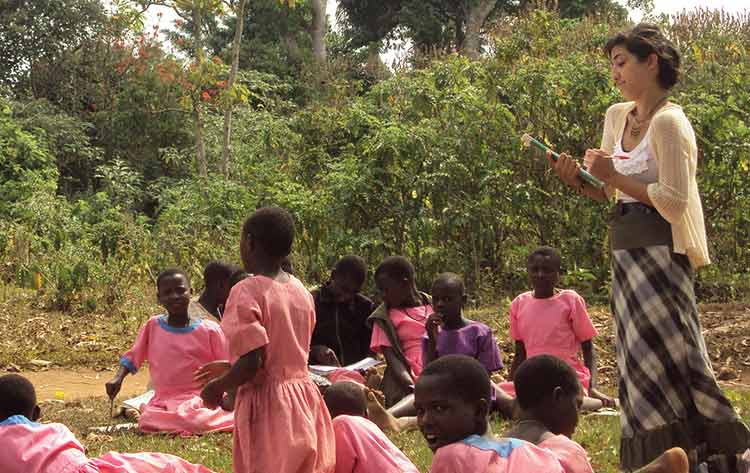

By Katie Fedosenko
For twelve students this summer, the classroom is going global.
When course work meets citizenship, the result is Sociology 435. The course integrates regular classroom-based teaching with experiential learning, connecting theoretical knowledge to everyday practices and encouraging students to be responsible citizens globally and locally. With three weeks in intensive classes taught by Professor Dawn Currie and six weeks in a community development project in Uganda, students are challenged to develop academically, socially and personally.
Currie, Professor of Sociology and Women and Gender Studies, provides her students with an education for social justice. Together they critically examine unequal relations and engage in collective and creative action for change. A feminist scholar, Currie strongly promotes a participatory classroom. Students are encouraged to think critically about the impact that their presence will have on project partners, and the ethics of working with communities of ‘others’, which boils down to knowledge of colonial and neo-colonial relations. She employs the practice of reflexivity, the act of interrogating and analyzing our own thinking and actions.
One of the students enrolled in the course, Chaya Go, said that SOCI 435 is great because of the small class size and the discussion issues critical to the discourse on international development.
Chaya is a Anthropology and Visual Arts major. She said that Currie taught her to “always give regard to the perspectives of our local partners, indigenous knowledge and value systems.”
During the service placements in Uganda, students are hosted by a Community Based Organization. Currie has taught the course twice before and for the first time, she will meet with the students during their field placements to co-facilitate a two day workshop. She will also facilitate gender training with TASO, one of the host organizations with Tamara Baldwin, the Associate Director of Go Global.
She will host post-placement seminars in September, which will deepen reflection on placement experiences and student’s understandings of responsible citizenship in a global world. Students will be sharing their experiences by preparing and presenting posters at a reception on campus.
According the Currie, the value of international service learning is threefold: it provides students with a basis for lifelong learning; it educates students to be agents of social change; and prepares students to continue participating in the politics of social justice as alumni. Students learn about themselves, other cultures and the nature of relationships between ‘North’ and ‘South.’ Furthermore, they are given tools to be self-directed learners.
Chaya’s goal for her ISL experience is to “truly grow as a person ; not only in the acquisition of new skills or experiences, but to genuinely connect with others and to learn their own understanding of what a ‘meaningful life’ is like for them .”
Find out more at Go Global.


